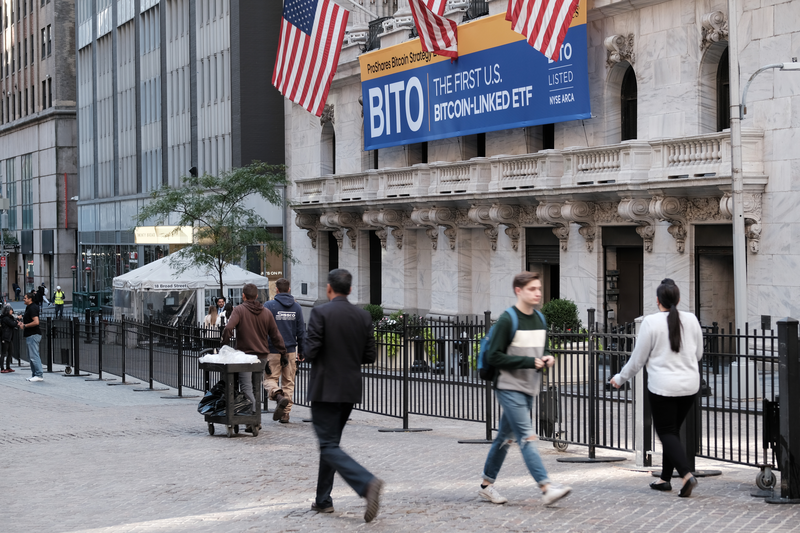In denying Grayscale’s proposed bitcoin fund, the SEC was “arbitrary and capricious”, the District of Columbia Circuit Court of Appeals said on Tuesday, adding that the SEC had no legitimate basis for its decision.
In July, the SEC told exchanges Nasdaq and Cboe Global Markets, which filed the applications on behalf of asset managers including BlackRock and Fidelity Investments, that their applications to launch spot bitcoin ETFs were not sufficiently clear and comprehensive.
Spot ETFs invest directly in underlying assets, typically stocks or bonds, at the current market price (spot price). They aim to replicate the performance of a specific index or asset class by holding a portfolio of the actual securities that make up the index.
“This ruling is not just about Grayscale or Bitcoin, it sets a precedent for the broader crypto industry. This is big, positive, and precedent-setting news.”
Ji Kim, General Counsel and Head of Global Policy, Crypto Council for Innovation
The court’s decision is a blow to the SEC, which has frequently modified its position on how crypto should be regulated in the US. The ambiguity has led to a very public conflict with major exchange Coinbase.
“This ruling is not just about Grayscale or Bitcoin, it sets a precedent for the broader crypto industry. This is big, positive, and precedent-setting news,” says Ji Kim, General Counsel and Head of Global Policy for the Crypto Council for Innovation. “It provides the obvious reminder that it is critical for regulators to provide much needed clarity and rationale when making such critical determinations affecting such a significant industry.
“The door is now open for a range of investors, including those who have historically been apprehensive due to a lack of regulatory clarity.”
Clarifying crypto regulation
It is believed the decision will put further pressure on the SEC to clarify crypto regulation.
“First, if bitcoin ETFs are approved, it would open up the cryptocurrency market to a broader range of investors who might have been hesitant to directly invest in digital assets. This influx of new capital from institutional and retail investors could drive up demand for bitcoin, leading to an increase in its price,” says Nigel Green, CEO, deVere Group.
“Second, ETFs typically involve the purchase of the underlying asset by the fund managers. If bitcoin ETFs follow this structure, it could create a substantial demand for actual bitcoins to back the ETF shares. This increased demand, coupled with the limited supply of bitcoin (capped at 21m coins), could lead to a supply-demand imbalance, resulting in a price surge.
And third, the launch of bitcoin ETFs might improve the overall perception of cryptocurrencies in the eyes of regulators and traditional financial institutions. This increased legitimacy could attract more conservative investors who were previously wary of the regulatory uncertainties surrounding cryptocurrencies. As more institutional money flows into the market through ETFs, the price of bitcoin would experience upward pressure.”
Asset class
Others believe this as a defining moment for crypto’s status as an asset class, and provides the impetus for the SEC to soften its approach.
“The ball will now be in the SEC’s court. This could set a precedent that may pave the way for a slew of similar products to enter the market,” says Tim Frist, CEO, Yield App. “Notably, the fact that BlackRock – the world’s largest asset manager – wants to enable direct bitcoin investment for the mass market underscores the intricate relationship between established financial powerhouses and the innovative realm of cryptocurrencies. While bitcoin ownership doesn’t automatically mean protocol control – especially at a fund level – it does indicate the maturing influence of institutional players.”
It is not yet clear when the first bitcoin ETFs will become available, but experts speculate it could be as early as Q1 2024.













